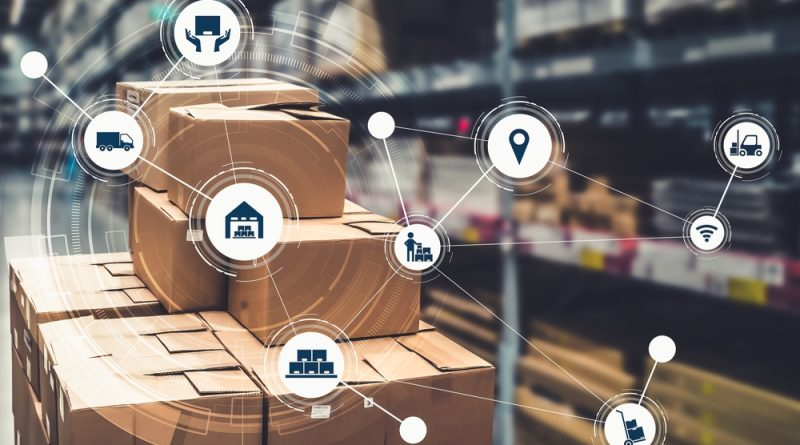
AI in Logistics: Streamlining the Supply Chain
Hey there, logistics lovers and supply chain enthusiasts! Today, we're diving into the world of AI in logistics. Buckle up, because we're about to take a journey through the veins of global commerce – and trust me, it's more exciting than it sounds!
The AI Traffic Controller of Global Trade
Imagine having a super-smart traffic controller overseeing the entire global supply chain. That's essentially what AI is becoming in logistics. These intelligent systems can optimize routes, predict delays, and even reroute shipments in real-time based on countless factors. It's like having a crystal ball that can see through traffic jams, stormy seas, and crowded ports!
Warehouse Wizardry: AI-Powered Inventory Management
Let's talk about warehouses – the unsung heroes of the logistics world. AI is turning these storage spaces into marvels of efficiency. Picture robots that can navigate complex warehouse layouts, picking and packing orders with superhuman speed and accuracy. AI systems can predict demand, optimize stock levels, and even suggest the most efficient arrangement of goods. It's like playing a giant game of Tetris, but with real-world consequences!
Last-Mile Delivery: The Final Frontier
Now, onto everyone's favorite topic – last-mile delivery. AI is revolutionizing this crucial final step of the logistics journey. From route optimization that considers traffic patterns and delivery windows to predictive models that can estimate delivery times with uncanny accuracy, AI is making sure your package arrives at your doorstep as efficiently as possible. Some companies are even experimenting with AI-powered autonomous delivery vehicles and drones. The future of delivery might just be knocking on your door – literally!
Predictive Maintenance: Keeping the Wheels Turning
One of the coolest applications of AI in logistics is predictive maintenance. Think of it as a health tracker for your entire fleet of vehicles, ships, and machinery. AI can analyze data from sensors to predict when a vehicle is likely to break down before it actually happens. This means less downtime, fewer unexpected delays, and smoother operations overall. It's like having a psychic mechanic for every vehicle in your fleet!
Supply Chain Visibility: Shining a Light on the Black Box
AI is also bringing unprecedented visibility to the supply chain. With AI-powered analytics, companies can track shipments in real-time, identify bottlenecks, and even predict potential disruptions before they occur. It's like having x-ray vision for your entire supply chain. This level of visibility isn't just cool – it's crucial for building resilient supply chains that can weather unexpected storms (both literal and figurative).
Green Logistics: AI for Sustainability
Here's a feel-good factor – AI is helping make logistics more sustainable. By optimizing routes, reducing empty miles, and improving overall efficiency, AI is helping to significantly reduce the carbon footprint of logistics operations. Some AI systems can even factor in environmental impact when planning routes and shipments. It's like having an environmentally conscious co-pilot for the entire industry!
The Human Factor: Collaboration, Not Replacement
Now, I know what you might be thinking – "Are robots going to take over all logistics jobs?" The reality is much more nuanced. While AI is automating many tasks, it's also creating new roles and augmenting human capabilities. The future of logistics will likely be a collaborative effort between human expertise and AI-powered insights.
Challenges on the Road Ahead
Of course, implementing AI in logistics isn't without its speed bumps. There are significant upfront costs, the need for specialized skills, and important questions about data security and privacy. Plus, there's the challenge of integrating AI systems with existing infrastructure and processes. It's not just about plugging in a new system; it's about transforming the entire logistics mindset.
The Future is Bright (and Probably AI-Delivered)
As we look to the future, the possibilities are mind-boggling. We're talking about self-organizing supply chains, predictive networks that can anticipate and adapt to global events, and perhaps even AI systems that can negotiate and make autonomous decisions within predefined parameters.
Wrapping Up
So there you have it – AI isn't just changing logistics; it's revolutionizing how goods move around the world. From smarter warehouses to predictive maintenance and sustainable operations, AI is making logistics faster, smarter, and more efficient than ever before.
What do you think? Are you excited about the potential of AI in logistics, or do you have concerns? Drop a comment below – I'd love to hear your thoughts!
Until next time, keep on truckin' (or shipping, or flying), and remember – the future of logistics is looking pretty smart!